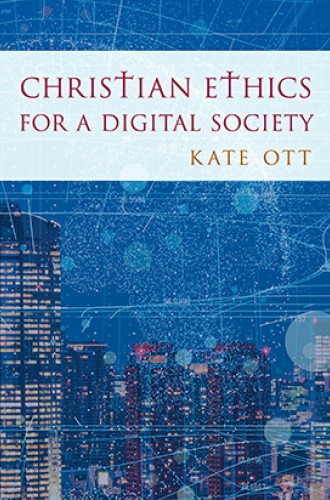Ethical hacks for managing our adolescent technologies
Kate Ott looks at the moral implications of digital language.
It is a truism, but nonetheless true: ethical reflection on a new technology or practice always lags far behind the adoption and use of that technology. This means that technology creators and merchandisers always have a head start on those who do the long, slow work of ethical reflection.
Kate Ott’s compelling analysis appears 25 years after Google was founded, 15 years after Facebook, 13 years after Twitter, 12 years after the first iPhone, and nine years after Instagram. These technologies are not nearly as old as my children, and yet they and their digital siblings dominate contemporary life. We all find ourselves attempting to manage life in the world these technologies have created. It’s like we’re all on a runaway train commandeered by a group of very clever, wealthy, drunk teenagers.
Read our latest issue or browse back issues.
Ott’s reflection on what Christian ethics needs to look like in the digital society goes far beyond the most obvious issues: the addictive and distracting nature of smartphones and their apps, and the grave difficulty that many of us have engaging social media in a morally constructive or even coherent way. Smartphones, it has seemed to me, are where attention spans go to die, where face-to-face human interaction withers away, where addicts scroll mindlessly through cat videos, and where one bad moment on social media can ruin, or end, a life.
Ott goes far deeper than that in this excellent book, one of the first extended Christian ethical treatments of the digital society—and one that every Christian attempting to live in this brave new world should read.
It’s under 200 pages long, but Christian Ethics for a Digital Society is not a fast read. One reason is because, as Ott suggests, ethical analysis of our digital society and its products is impossible apart from “digital literacies” which most of us, even heavy digital product users, do not have. In other words—and this is scary—most of us today use a digital language that others have created, a language with an underlying structure and purpose that we do not understand. It is always dangerous to blunder around in a strange place, attempting to speak a language in which we are not fluent. Most Americans who have visited Paris will immediately get the idea.
Ott fearlessly takes us into the underlying structure and purpose of digital language and makes us think about many of the moral issues that matter most. Her discussions are fascinating.
Using the Tower of Babel story as an interpretive tool, Ott offers a nuanced treatment of how corporate technologists are simultaneously constructing a Tower-of-Babel-like shared language and also—through the use of personalized algorithms connected with user behavior—creating an online world specially designed to please (and sell to) each individual. She urges a greater awareness of how predictive analytics drive the algorithms that affect everything from our Google search results to the ads we see online. She also points to the amoral way in which sites like Facebook feed us the materials we have clearly demonstrated that we want to see, even when these materials reinforce our racism, sexism, or xenophobia.
Ott discusses the shaping and curating of the new digital self and the paradoxical way in which we are both connected and isolated in online spaces. She suggests that the human self is now not just embodied and inspirited but also datafied. She addresses how nothing ever goes away on social media. Even when we try to bury or hide what we have posted, or what others have posted about us, it appears to live forever, often with harmful effects. We (and our worst moments) live forever online. In that light, she ponders how sin and conversion (metanoia) relate to our online lives. Can our online sins be repented and forgiven?
We are constantly under online surveillance, Ott notes. By this she means that our data is constantly being scooped up, digitized, aggregated, and monetized. But she also describes how we (with the help of Facebook) are creating a world in which friends, marketers, and enemies constantly surveil one another for purposes ranging from friendship to sales to destruction.
Ott also makes a laudable effort to explore where in the world the materials for our gleaming smartphones are extracted, what their environmental impact is during their lifetime, and where these quickly obsolete devices go to die. Did you know that at least some massive servers have been placed on the ocean floor, where they have an impact on marine life that no one apparently has bothered to study before placing them there?
A significant part of any ethical analysis is identifying the problem, which Ott does well. Christian ethics also involves the framing of relevant theological-ethical norms. Ott’s framework is an interesting mix of classic, Catholic-inflected ethical categories and newer feminist-liberationist approaches. Her norms lead her to a call for digital literacy, the protection of human difference, resistance to technologically enhanced injustice, and moral practices of attunement, forgiveness, and metanoia.
Ott cautions against either complacency or “moral panic” in relation to the digital age. She instead calls for a cocreative posture in which, empowered by greater digital literacy, we learn to “ethically hack” the technologies that dominate our lives in order that we might manage them ethically rather than allow them (and their creators) to manage us.
A version of this article appears in the print edition under the title “Ethical hacks for a digital age.”






